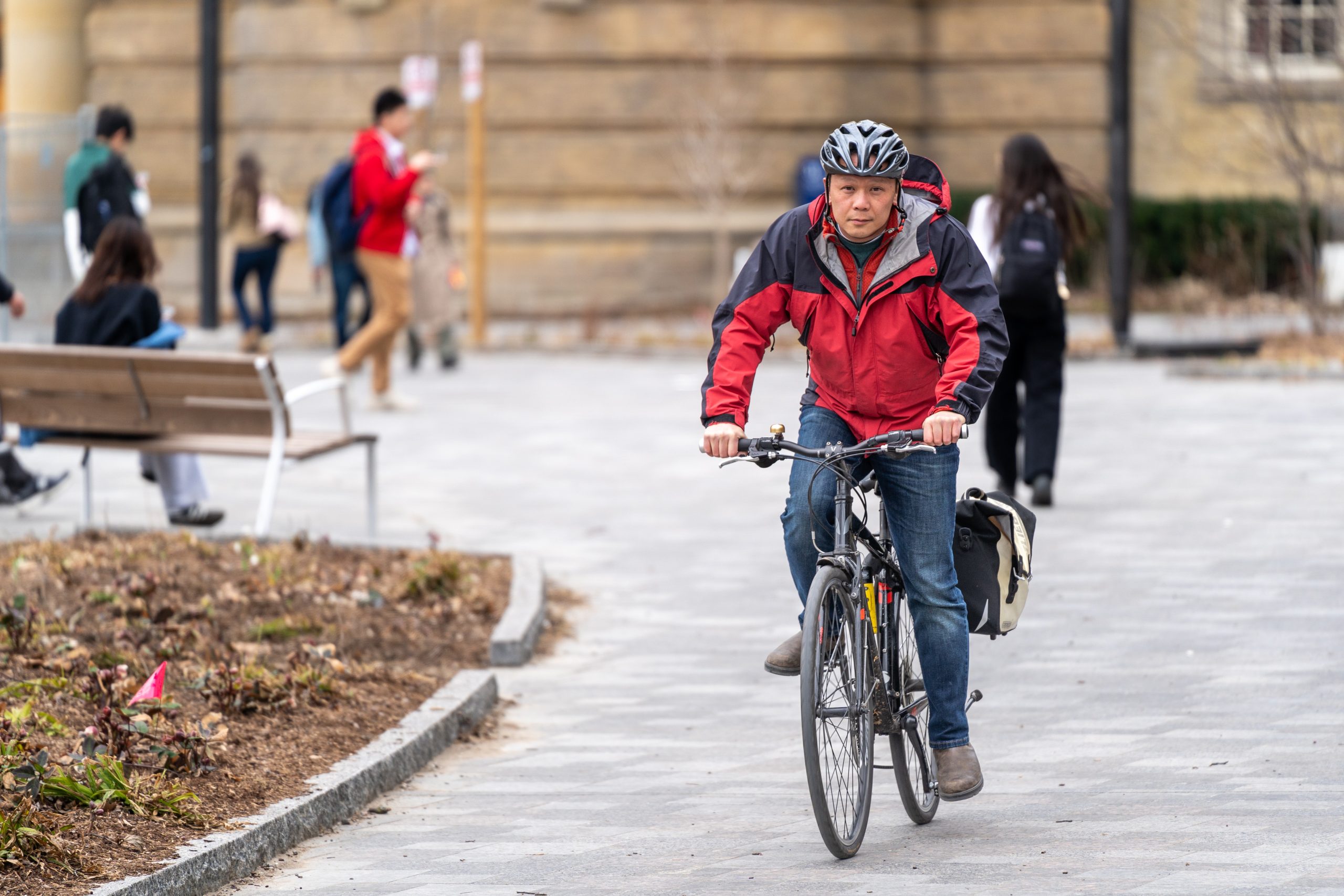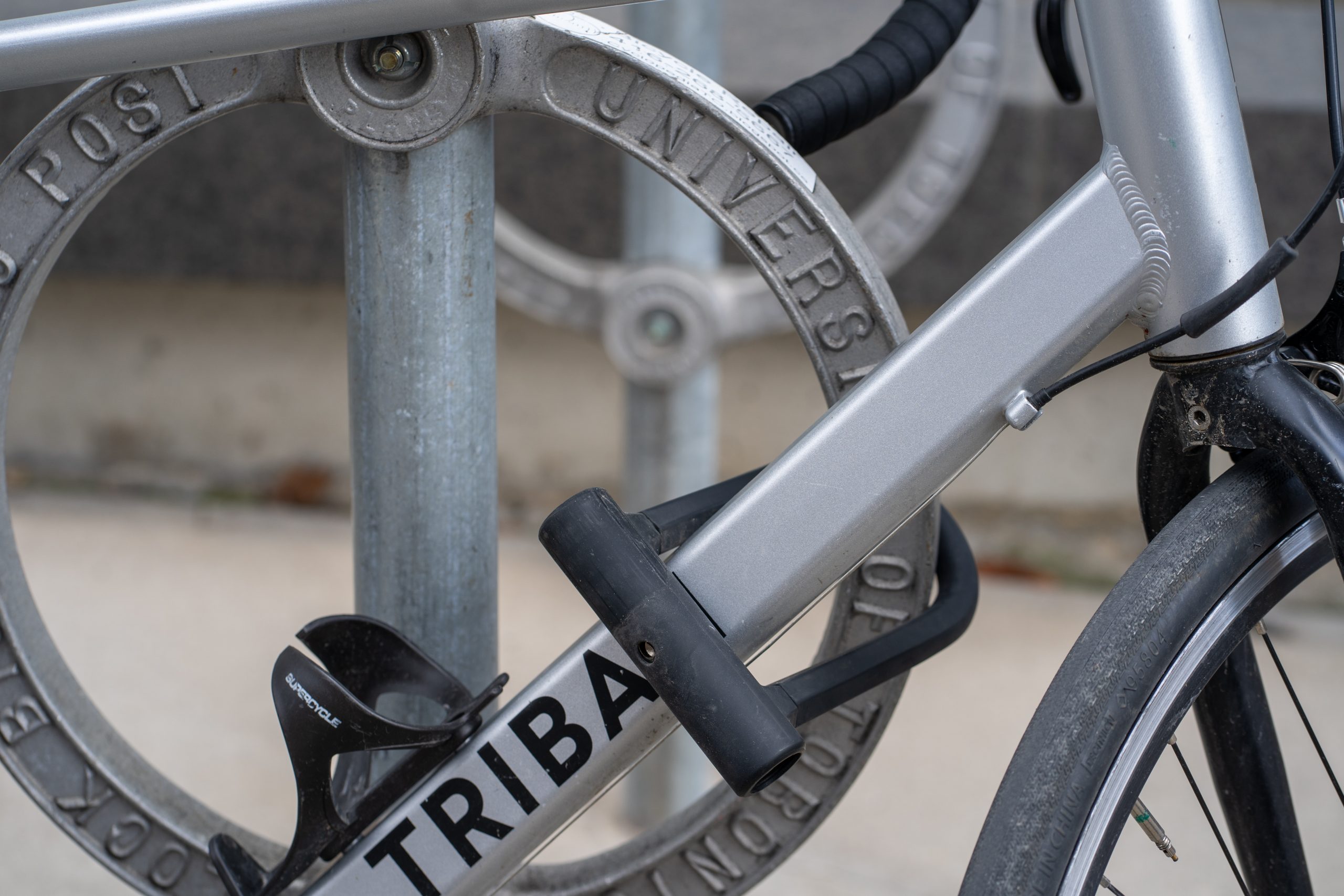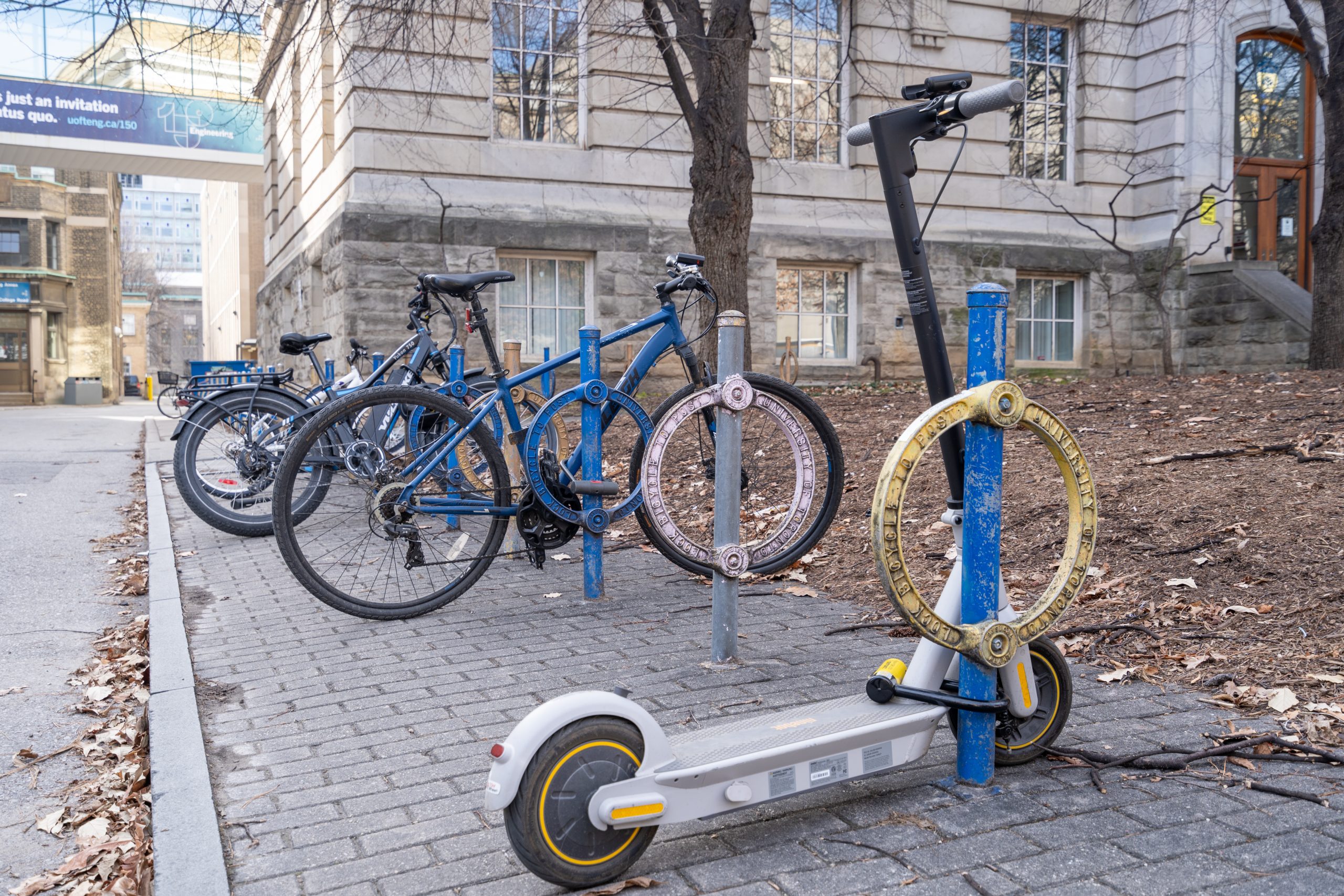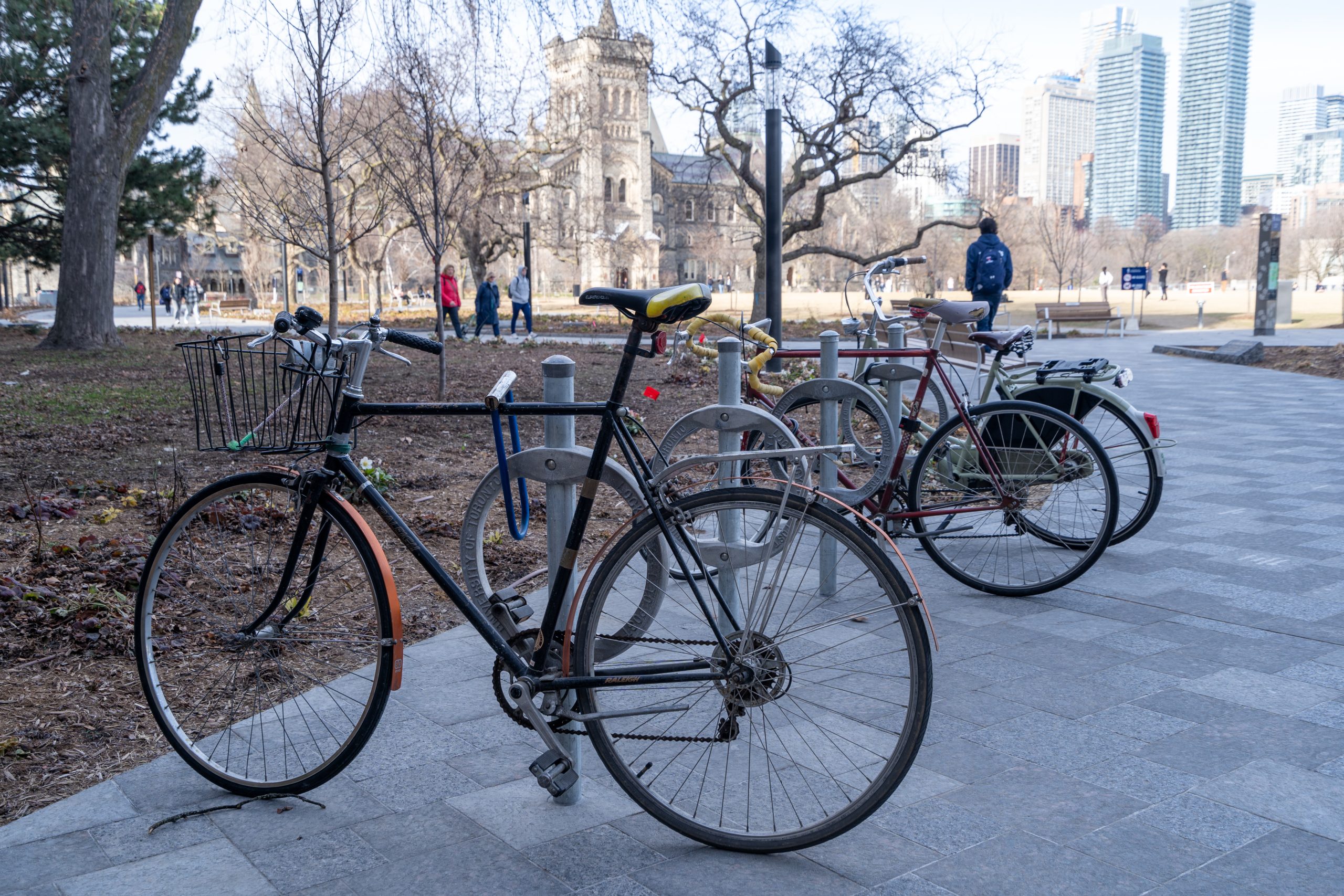Riding into spring: safety, awareness, and eco-friendly transportation
Whether you’re a seasoned cyclist dusting off your ride or hopping on a brand-new bike (or e-bike), spring is the perfect time for cycling.
Before hitting the road, here’s what you need to know about bike theft prevention, e-bike fire safety, and making the most of this sustainable mode of transportation.

Bike theft prevention
According to Veronica Martins, special constable, campus safety, bike theft has become an increasingly common problem across Toronto, and U of T is unfortunately no exception with 73 bicycles reported stolen on campus in 2022.
The good news is that there is hope.
“There are proactive steps you can take to help reduce the likelihood of your bike being stolen,” advises Martins.

Follow these tips and strategies to reduce the risk of bike theft:
- Purchase the right lock. Locks should have a high Sold Secure rating, which undergo a range of tests to ensure their durability. The ratings range from bronze (low risk protection) to diamond (highest risk protection) and can be found as a sticker on the lock. Use a hardened steel U-shaped locking device, a steel chain, or a padlock.
- Double lock your bike. Using two locks can significantly slow down bike thieves.
- Choose a safe location. Lock your bicycle in a high-traffic and well-lit area.
“Registering your bike with the Toronto Police Service and recording your bicycle’s serial number are both effective methods to assist in your bicycle’s recovery if stolen,” says Martins.
To report a stolen bike on campus, call Campus Safety at 416-978-2323 or visit the Campus Safety Office at 21 Sussex Avenue.
E-bike fire safety tips
Given that lithium battery fires have doubled in 2023 in Toronto while e-bikes and e-scooters are becoming increasingly popular, understanding and protecting against the fire risks of their lithium-ion batteries is crucial.

“Safe storage, responsible maintenance, and proper use of e-bikes are all essential for protecting not only the rider but everyone around them,” says Denise Rose, manager, fire prevention services.
Rose outlines several best practices for the use and maintenance of e-bikes:
- Purchase Underwriters Laboratories of Canada (ULC)-listed batteries. ULC batteries have been tested to meet nationally accepted safety standards and would present a lower fire risk than unlisted batteries.
- Frequently inspect the batteries. If a battery shows signs of leaking or damage, replace it immediately.
- Avoid overcharging. Stop charging the e-bike once the battery is fully charged.
- Keep e-bikes away from children to prevent the risk of damage to the device.
- Always store e-bikes between 0°C or 40°C:
- Never leave bikes in the sun. Exposure to high temperatures poses a fire risk as e-bike batteries become prone to leakage.
- Never use e-bikes during the winter season. If stored at temperatures below 0°C, the casing of the battery could deteriorate.
Recently, an e-bike caught on fire in the TTC due to the failure of a lithium-ion battery pack—even though the bike was recently serviced, and the battery was ULC listed. So, while safety precautions can be taken, there is always a risk of e-bikes malfunctioning.
To report an e-bike that poses a fire safety risk, please call Campus Safety at 416-978-2222 and 911 from a safe area.
Sustainable transportation
Scott Hendershot, senior manager, sustainability office highlights that cycling is a highly sustainable mode of transportation because it reduces scope 3 emissions, which are emissions that are not produced by the University directly but arise from activities that the campus is indirectly responsible for (in this case, commuting).
“Cycling also serves an important role in connecting people with nature and the community,” says Hendershot. “Riding a bike allows you to directly experience the outdoors—the sights, sounds, and fresh air. This can have a positive impact on mental health and provide a greater appreciation for the natural environment.”

As an annual celebration of cycling, the Sustainability Office hosts a Bike to Work Day.
According to Hendershot, “Bike to Work Day not only celebrates the environmental and health benefits associated with cycling, but sparks conversations that promote cycling on campus, aligning with U of T’s mission to address all emissions!
–
Let’s make cycling even more of a defining feature of U of T life this spring! With smart theft prevention, safe e-bike practices, and a commitment to sustainability, we can create a thriving cycling culture on campus.
